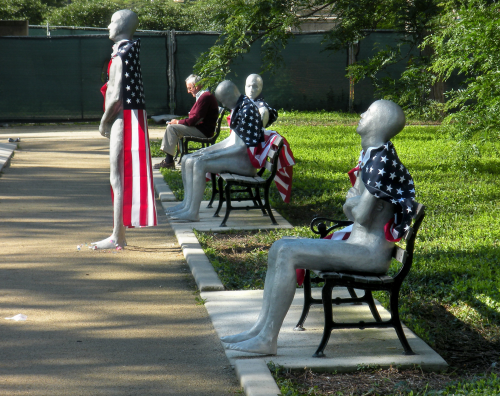Nov 07, 2014
Immigration experts from DePaul University available to speak on politics, law and poverty
Immigration experts from DePaul University available to speak on politics, law and poverty
CHICAGO — President Barack Obama signaled that he plans to take executive action on immigration reform before the end of the year. Faculty experts from DePaul University are available to provide insight and commentary on the political, legal and social implications of this potential action. The scholarly experts include:
Allison Brownell Tirres is an associate professor and the associate dean for academic affairs in the College of Law. Tirres is a legal scholar and historian and an expert on immigration, citizenship and civil rights. She can address topics such as the history of deportation relief, use of executive power in immigration law, growth of the federal immigration bureaucracy and the increasing severity of immigration enforcement. "Administrative relief is not a new idea in immigration law. Immigration agencies and the president have long exercised the authority, delegated to them by Congress, to choose whether and when to prosecute migrants for immigration violations. Congressional inaction has placed enormous political pressure on the executive branch to exercise this authority in new and creative ways,” she said. Tirres can be reached at atirres@depaul.edu or 312-362-8116.
Kathleen Arnold is a visiting professor of political science in the College of Liberal Arts and Social Sciences. Arnold is a political theorist and immigration expert who has written on the use of executive authority under the Obama administration and previous administrations. She can speak on anti-immigrant sentiment; detention and deportation; and local, state and federal immigration policy. “At this moment, black and white terms such as legal and illegal do not fairly represent the lives and conditions of immigrants. If the president proposes alternatives to the mass detention and deportation system, the economy will remain stable and the government will save money,” Arnold said. “From a moral standpoint, the current system has led to mixed status families and individuals with uncertain futures. The use of executive authority will benefit people who already live here, whose status is gray not because they are criminals, but because a clearer, less costly path to legal status is needed.” She can be reached at karnol14@depaul.edu or 773-325-4736.
Bruce Evensen is a professor of journalism in the College of Communication. Evensen, who directs DePaul's journalism program, worked as a broadcast journalist and bureau chief on both sides of the Atlantic. He writes and teaches on the relationship of the president of the United States to the press, as well as public opinion. “Executive action on immigration is the nuclear option,” said Evensen. He can be reached at bevensen@depaul.edu or 312-362-7616.
Adrienne M. Holloway is an assistant professor in the School of Public Service. Holloway is a social scientist and can speak to the impact that immigration reform can have in reducing suburban poverty. “The ability for undocumented workers to transition to mainstream employment will likely increase their wages and decrease instances of labor abuse to which they are often subjected,” Holloway said. Her research focuses on race, housing and poverty issues in urban and suburban spaces. She can be reached at ahollow4@depaul.edu or 312-362-5574.
###

Immigration reform and the possibility of an executive order before year’s end are topics that can be discussed by faculty experts from DePaul University in Chicago, where the cast iron and aluminum statues of the Borders public art exhibit on Michigan Avenue were adorned with American flags by unknown artists this past July. The Grant Park art installation is by artist Steinunn Thórarinsdóttir. (Photo by Jamie Moncrief)
